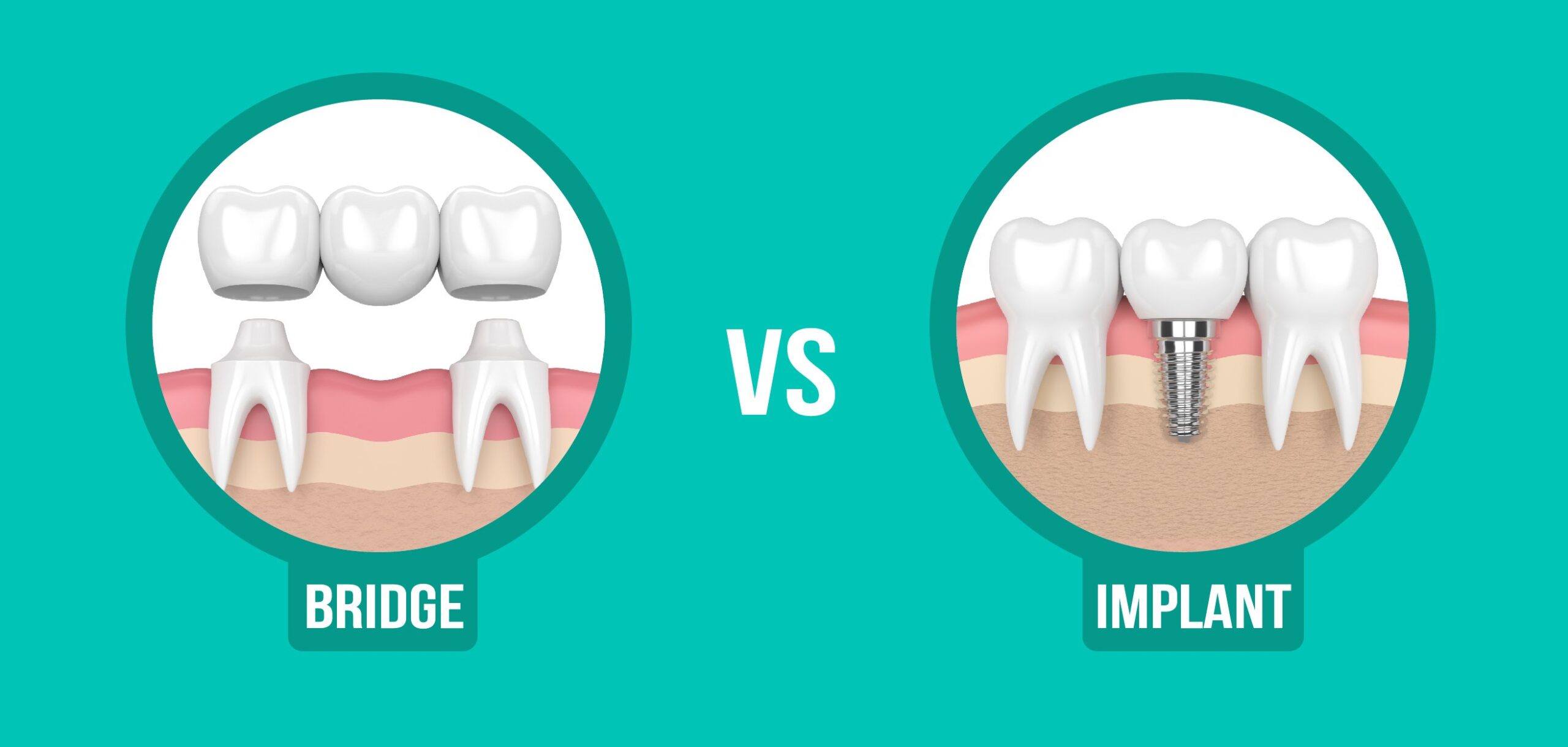Are you looking to know What’s Better: A Dental Implant or a Bridge? then read this article to find out What’s Better: A Dental Implant or a Bridge

The loss of teeth is one of the most common things that people face as they grow older and having the appropriate replacement is necessary in the context of the health of teeth and comfort on a daily basis. If you are looking for the Best Dentist Suwanee, GA dental implants and dental bridges are two of the most effective solutions whether the aim is to restore confidence in your smile, enhance your capability to eat and talk, or preserve your facial balance.
Pros and Cons
Dental bridges are also artificial teeth which are attached to the natural teeth on both sides of the gap. These are able to re-establish both functionality and esthetic value without surgical intervention. Bridges are easy to install and are also cost effective in the short run, particularly where more than two teeth that are adjacent require replacement. Conversely, a bridge depends on the well being of the surrounding teeth, and this might need modification to enable the new structure to sustain.
Dental implants- In dental implants, a titanium post is inserted into the jawbone and then a tooth-shaped crown is placed over it. Implants are preferable due to their natural appearance, durability and capability to last decades without replacement. Implants also do not affect healthy teeth, which surround the bridge, as opposed to the latter. It is however a surgical process, costly in the short term, and may require months before it comes to fruition.
Costs
Bridges are cheaper to install and more frequently handled by dental insurance. The expenses vary according to the type of material, the amount of teeth replacing, and other types of treatments needed. Generally, a bridge may cost between a couple of hundred and more than a thousand apiece, and additional cost is added on crowns.
Dental implants are generally more costly and they are usually sold at between a few thousand to several thousand dollars per tooth. Insurance cover is less assured regarding the implants yet most people prefer them due to their lasting use and the fact that they do not need replacement in the future.
How to Choose
The decisions between a bridge and an implant are based on your budget, insurance coverage, missing teeth, and your general health. A bridge can prove more convenient to individuals who lack several teeth in a row. In case of loss of one tooth, and you are otherwise healthy with a good jaw, implant is usually the choice. Individuals with health issues that influence healing like diabetes and some blood related ailments ought to use bridges instead of implants, because surgery may not be optimal.
Time Commitment
An implant placement is not a lengthy procedure, and in most cases, two dental visits separated with a few weeks suffice. This is time consuming because an implant has to heal the jawbone surrounding the titanium post before adding the final crown.Healing can take two to six months, and the entire process involves multiple appointments, including possible temporary solutions during the transition.
Other Treatment Options
Beyond bridges and implants, partial dentures and space maintainers are alternatives for some patients. Partial dentures are less expensive and ideal when neighboring teeth can’t support a bridge but may be less stable or comfortable. Space maintainers are usually reserved for cases when teeth cannot be replaced right away, or for children waiting for adult teeth to emerge. Orthodontic retainers can also help keep teeth from shifting into the gap.












